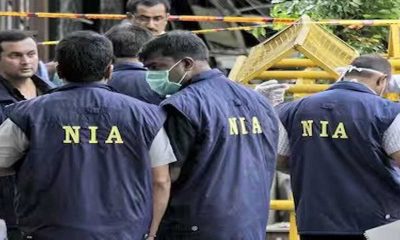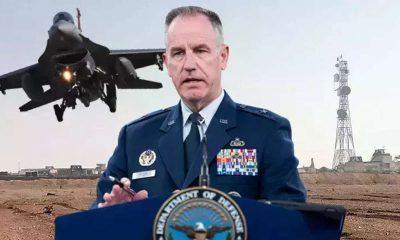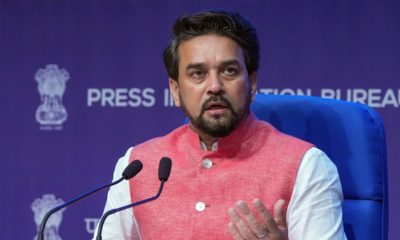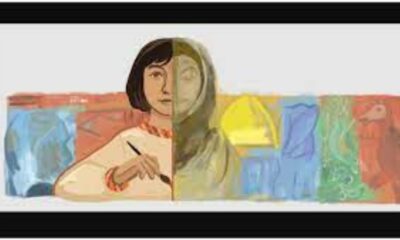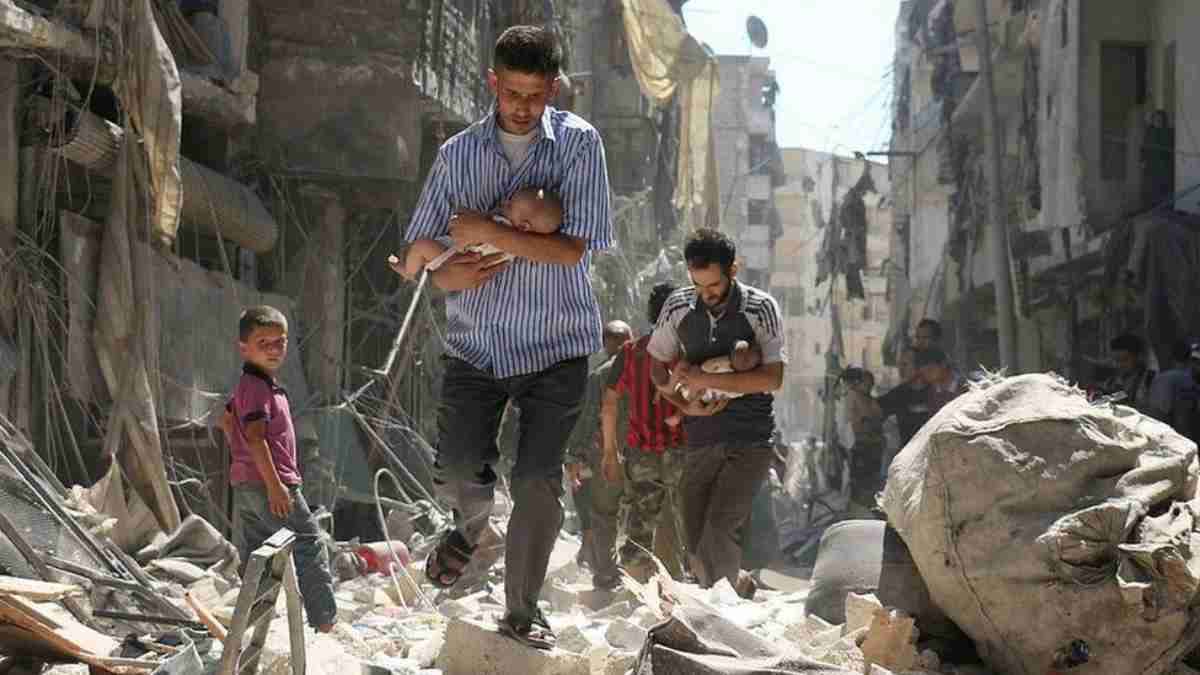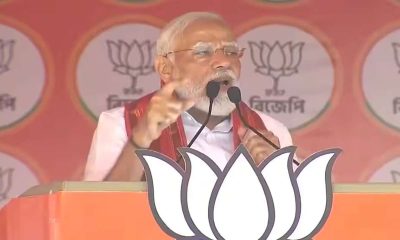Latest world news
Fair Is Foul And Foul Is Fair In Syria
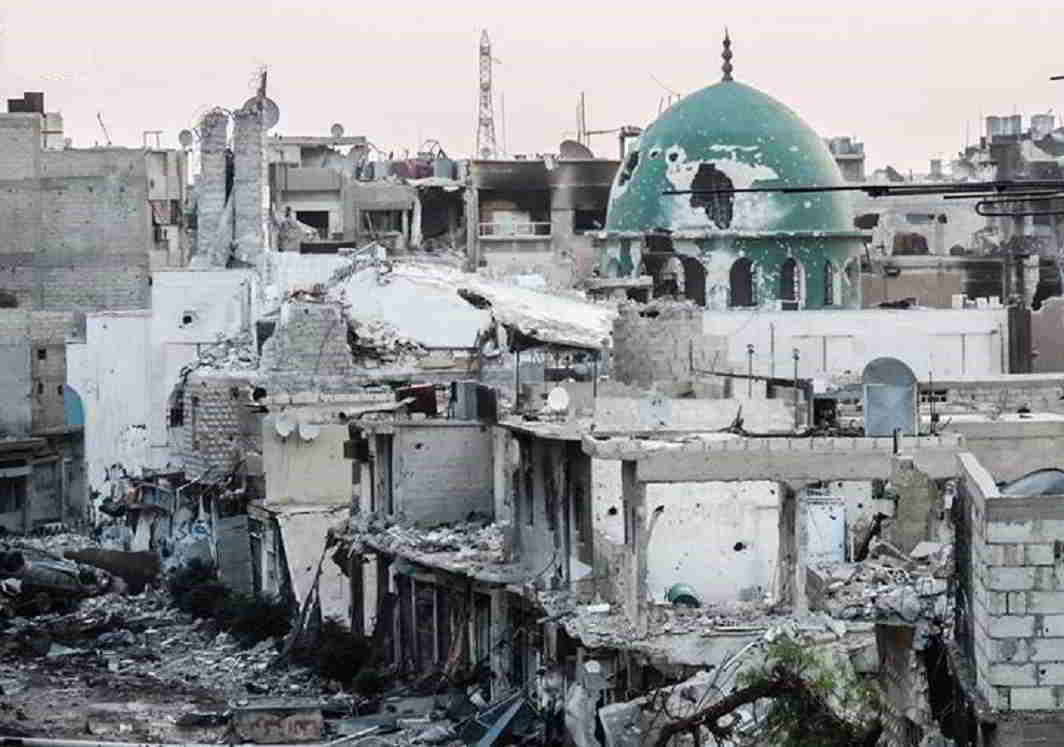
[vc_row][vc_column][vc_column_text]
By Saeed Naqvi
Like Henry Kissinger, New York Times columnist, Thomas L Friedman, belongs to a growing tribe of strategists who insist that the Palestinian-Israeli conflict has been overshadowed, indeed overwhelmed, by a much bigger, Shia-Sunni faultline.
Even though Osama bin Laden, the 9/11 hijackers, Wahabism, Salafism, are all traced to Saudi Arabia, the US, Israel and the West in general have developed a high comfort level with Saudi Arabia regardless. In this framework, the West has placed the Shia world in opposition to it.
Was it always like this? Consider this recent historical perspective.
“As we approach the season of the Nobel Peace Prize, I would like to nominate the spiritual leader of Iraq’s Shiites, Grand Ayatollah Ali al-Sistani, for this year’s medal.” The recommendation came from NYT ace columnist, Friedman. For emphasis, he added: “I’m serious.”
This was in 2005. Friedman, was “in” with George W. Bush. In ecstatic pieces for the world’s most powerful newspaper, the NYT, he repeatedly described the occupation of Iraq as history’s greatest effort at democratization.
Americans had come against Saddam Hussain, a tough Baathist and atheist by belief and a manufacturer of weapons of mass destruction. Remember Saddam invoked “Allah” for political mobilization only after the 1992 operation Desert Storm. He had Allah o Akbar inscribed on an otherwise secular emblem as an afterthought.
The eclipse of Saddam brought great relief to Shias in the South – around the holy cities of Najaf, Karbala and oil rich enclaves neighbouring Basra. For the first time the world realized that Shias were an overwhelming majority in all of Iraq.
A triangular situation had emerged – the occupying Americans, Sunni (plus Kurdish) minority and the Shia majority. The Shias, led by Ayatollah Sistani, played a straight political hand. Once occupation had taken place, he encouraged the occupiers against his tormentor, Saddam Hussain.
That is when Friedman was moved to write:
“If some kind of democracy takes root here (Iraq), it will also be due in large measure to the instincts and directives of the dominant Iraqi Shiite communal leader, Ayatollah Sistani.”
“It was Sistani who insisted that the elections not be postponed in the face of the Baathist-fascist insurgency. And it was Sistani who ordered Shiites not to retaliate for the Sunni Baathist and Jihadist attempts to drag them into civil war by attacking Shiite mosques and massacring Shiite civilians.”
Friedman proceeded to compare the Ayatollah with other icons who helped bring democracy to their respective countries – Nelson Mandela and Mikhail Gorbachev. The quality of democracy that obtains in Russia, Iraq and South must be left for Friedman to applaud.
Rightly or wrongly, Friedman extrapolated from his experience in Iraq. This is at a variance from the fraud Bush’s Defence Secretary, Dick Cheney sought to perpetrate on April 9, 2003, when he had the marines pull down Saddam Hussain’s state at Firdous square and attributed the event to a popular uprising.
Friedman zigzagged along shifting convictions, until by August 2015, he began to show the first signs of tolerating something so totally different from Sistani as to take one’s breath away. In a conversation with Barack Obama he appeared to be nodding agreement on a kind of positive ambiguity about the ISIS.
Sudden and exponential growth of the Islamic State was something of a mystery. It is in the nature of the post colonial media that the views of Developing country elites particularly in the Arab world (except allies like Saudi Arabia, other GCC countries and Jordan) never get reflected in the media. How did the elites in Iraq, Oman, Yemen, Syria, Egypt, Iran and other Muslim countries view the IS phenomenon. Without exception, they described it as an American, French, British, Saudi, Qatari and Turkish cooperative effort. I know first hand. Ask the ambassadors in New Delhi.
If this is what they thought, why were they silent? They were not silent, but their protestations were ignored by the global networks. So hopelessly one sided is the global media, that even shining stars of independent journalism like Seymour Hersh and Robert Fisk are killed by a simple trick of being ignored.
Writing on Donald Trump’s proposed visit to the centres of semitic religions, Riyadh, the Vatican and Jerusalem, Fisk satirically speculates: “Trump will be able to ask Netanyahu for help against the IS without – presumably – realizing that Israel bombs only the Syrian army and the Shia Hezbollah in Syria but has never – ever – bombed IS in Syria. In fact, the Israelis have given medical aid to fighters from Jabhat al Nusra which is part of Al Qaeda which attacked the US on 9/11.”
By universal consent, Fisk is among the most knowledgeable journalist who has lived in West Asia for decades. But the Imperial Information order keeps him outside the ken.
Truth however has a way of surfacing. Let us revert to Friedman’s interview with Obama. Friedman asked Obama why he delayed taking action against the IS when it was in its nascent stages?
Obama replies: “That we did not just start taking a bunch of airstrikes all across Iraq as soon as the IS came in was because that would have taken the pressure off Iraqi Prime Minister, Nouri al Maliki.”
In other words, by the US President’s own admission, the IS at that stage worked as an asset to apply pressure on Maliki who was in bad adour with the US because he had refused to sign the Status of Forces Agreement with the US ironically on the advice of exactly the person Friedman was recommending for a Nobel Peace Prize in 2005 – Sistani.
Lo and behold, in his recent column, Friedman is advising Trump to give up the pretense of fighting IS – because that is not in the US (and presumably Israel’s) national interest.
He wants “Trump to be Trump – utterly cynical and unpredictable. ISIS right now is the biggest threat to Iran, Hezbollah, Russia and pro-Shiite Iranian militias.”
“In Syria” Friedman recommends, “Trump should let ISIS be Assad’s, Iran’s Hezbollah’s and Russia’s headache.” In other words, let the IS be a western asset.
A recent cartoon with a most succinct message shows one Saudi ask another:
“We finance wars all around us, when shall we bomb the Jewish state?”
“When it becomes Shia.”
[/vc_column_text][/vc_column][/vc_row]
Latest world news
World Earth Day 2024: Google Doodle showcases aerial view of planet’s natural beauty
Google celebrated Earth Day 2024 with a special doodle featuring an aerial view of our planet’s biodiversity.
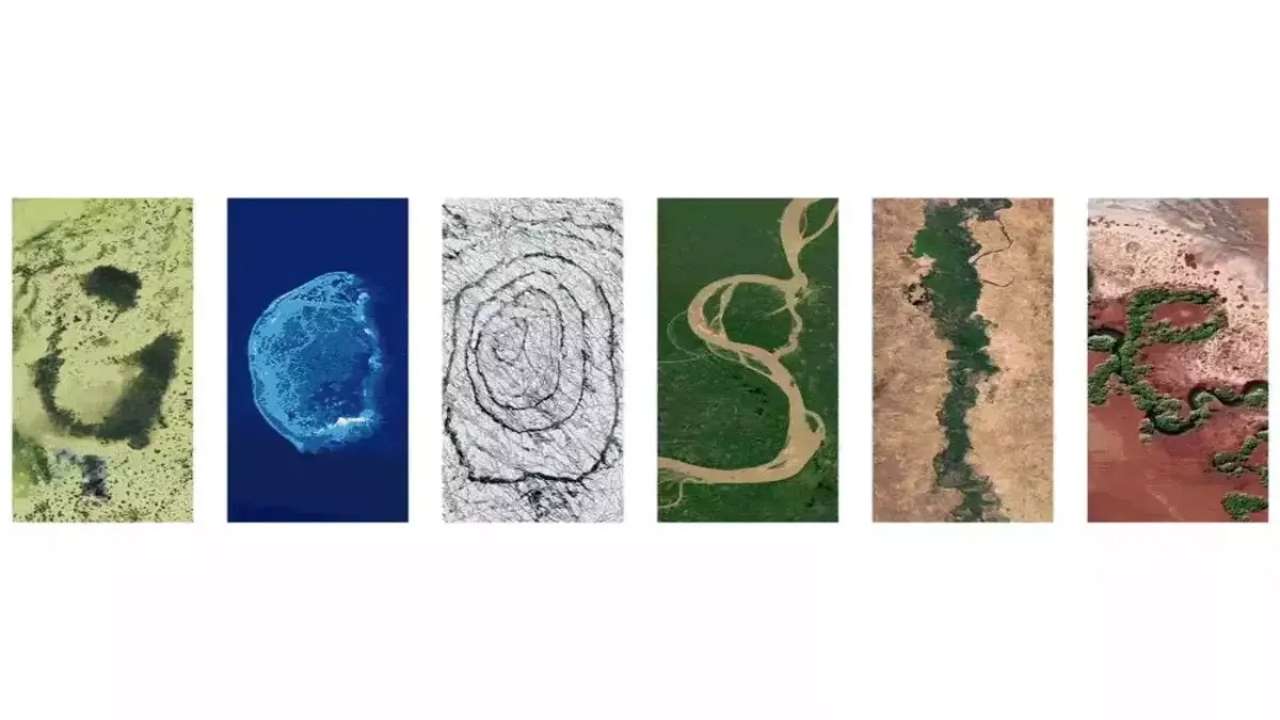
Google shared a doodle today to celebrate World Earth Day 2024, which showcased aerial photos of the planet’s biodiversity and natural beauty. Google reminded us of the importance of protecting planet earth for future generations with the help of this doodle.
The Google letters depict specific locations across the globe where people, communities, and governments work every day to help protect the planet’s natural beauty, biodiversity, and resources, according to the explanation of the annual Earth Day 2024 doodle on their website.
It said, these examples remind us that there’s much more to do to address the climate crisis and biodiversity loss, but also offer the promise of hope and optimism.
The islands of Turks and Caicos are represented by the letter “G.” The islands’ conservation efforts are concentrated on protecting important regions for biodiversity and addressing persistent environmental problems.
The largest reef in the southern Gulf of Mexico and a UNESCO biosphere reserve, Scorpion Reef National Park, is represented by the letter “O” in the Mexican flag.
The letter “O” features Iceland’s Vatnajokull National Park, which was designated as a national park in 2008 following decades of advocacy. The ecology within and surrounding the biggest glacier in Europe is safeguarded by this UNESCO World Heritage Site.
The letter “G” has the Jau National Park in Brazil on it. It is a UNESCO World Heritage Site and one of the biggest forest reserves in South America.
The Great Green Wall of Nigeria is represented by the letter “L,” and the Pilbara Islands Nature Reserves of Australia are represented by the letter “E.”
Meanwhile, Earth Day is a worldwide event that promotes protection of the environment every year. April 22 serves as a reminder of the importance of conservation efforts and sustainable practices to guarantee a healthier world and a brighter future.
The occasion inspires people across the world to come together and take action to protect the environment, strengthening our bonds with nature and promoting good change.
Latest world news
Bigg Boss 14 contestant Rahul Vaidya struggles walking in knee deep water, compares Dubai rains with Mumbai floods
Singer and TV personality Rahul Vaidya was recently stranded in the Dubai rains.

Rahul Vaidya, who was in Dubai ahead of his show which was scheduled to take place today, left the country due to heavy rains and reached Kolkata. The artist shared on social media his encounters in the UAE city, including challenges like walking through knee-deep water. Rahul provided an update regarding the heavy rainfall in Dubai on his Instagram profile.
The Bigg Boss 14 contestant revealed that he was in Kolkata and prepared to do an evening performance. Recalling the terrifying period he went through, Vaidya said there was a lot of confusion and panic in Dubai. The situation was similar to that when heavy floods hit Mumbai in 2005.
Vaiday also posted seval other images and videos of cars that were underwater and flooded roadways. The Bigg Boss 14 contestant, who shared his ordeal, claimed that even though it had just rained for two hours, the situation was dire.
In one of the video, which went viral he can be seen struggling in walking in knee-deep water. He can be also seen holding his sneakers in one hand and with other hand he was seen managing other things.
This is the result of the two hours of rain that it had, he can be heard saying in the video. Vidya also said he dosen’t believe Dubai is accustomed to a lot of rain. Everything had stopped working, he remarked.
After taking part in the first season of the singing reality show Indian Idol, Rahul Vaidya gained widespread recognition. In addition to Bigg Boss, he took part in Khatron Ke Khiladi 11.
Meanwhile, heavy rains that triggered flooding in the UAE and Bahrain, which left 18 people dead in Oman on Sunday and Monday, have paralyzed the financial hub of the Middle East, Dubai.
A lot of incoming flights were diverted from Dubai’s international airport because of the rain. At 7:26 p.m., the busiest airport in the world for foreign visitors stopped accepting new arrivals; a gradual resumption was announced for more than two hours later.
Images of planes navigating flooded tarmacs are making the rounds on social media.
According to pictures shared on social media, the flagship malls Dubai Mall and Mall of the Emirates both experienced heavy floods, while at least one Dubai Metro station had water up to the ankles.
There were several road collapses, severe flooding in residential areas, and numerous reports of leaks from windows, doors, and roofs.
Due to the unfavourable weather, schools around the United Arab Emirates were forced to close, and as more storms are predicted, the closures are anticipated to last until Wednesday. The government of Dubai allowed its staff to work remotely till this Wednesday.
Latest world news
Dubai sky turns green during storm in UAE, video goes viral
The UAE witnessed record-breaking rainfall on Tuesday and the National Centre of Meteorology recorded 254 mm of rainfall in less than 24 hrs in the Khatm Al Shakla area in Al Ain.

1 person was killed in UAE as it witnessed heavy rainfall on Tuesday, stranding commuters, flooding roads, disrupting trains and flights and resulting in water leakage from mall ceilings. The UAE witnessed record-breaking rainfall on Tuesday and the National Centre of Meteorology recorded 254 mm of rainfall in less than 24 hrs in the Khatm Al Shakla area in Al Ain. It is being said that the rainfall was the highest documented since the start of data collection in 1949.
The heavy rainfall in UAE came days after a similar situation in neighbouring Oman, where 13 people were killed in flash floods. Many parts of Oman saw torrential rains, which caused students to be trapped in buses and swept away motorists and trapped people in their homes.
Videos from Dubai circulating on social media showed widespread waterlogging on roads in Abu Dhabi, Dubai and other important cities. This left daily commuters in cars and other vehicles struggling to get back home. Dubai metro station too was seen flooded and closed.
One such video circulating on social media shows the aerial view of the city of Dubai from the top of a building. In the video the stormy winds are seen blowing over the city of Dubai. As the storm intensifies the Dubai sky turns green and ultimately gets covered by heavy rainfall. The video has gone viral on social media with more than 1.1 million views.
Another video showed water leakage from the ceilings of shopping malls, flooding the floors and destroying goods. A video which was shot in the famous Mall of the Emirates, showed pieces of ceiling falling as the rainwater gushed inside. Videos from many outlets of the Deira City Centre mall chain showed escalators being rendered unusable. Majid Al Futtaim, the company which owns the Mall of Emirates, said that the shopping complexes have been kept open and the customers are being sent away from the flooded areas.
-
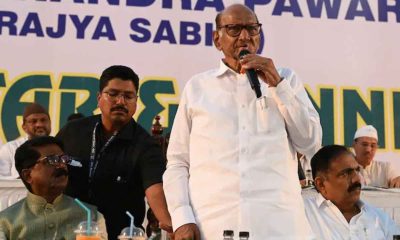
 2024 Lok Sabha Elections9 hours ago
2024 Lok Sabha Elections9 hours agoNCP (SP) leader Sharad Pawar says Prime Minister Narendra Modi is trying to create fear like Russian President Vladimir Putin
-
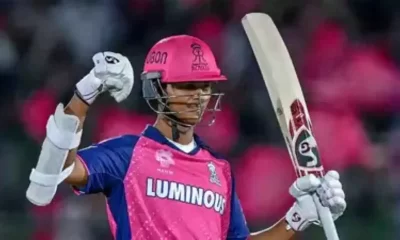
 Cricket news11 hours ago
Cricket news11 hours agoIPL 2024: Yashasvi Jaiswal hits brilliant century to help Rajasthan Royals beat Mumbai Indians by 9 wickets
-
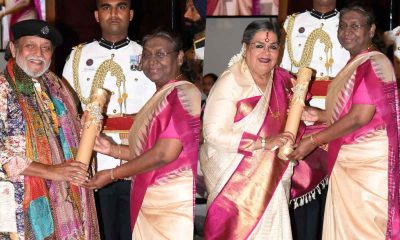
 Entertainment9 hours ago
Entertainment9 hours agoMithun Chakraborty, Usha Uthup honoured with Padma Bhushan
-
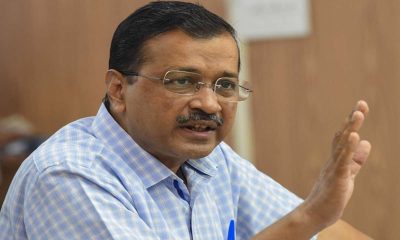
 India News11 hours ago
India News11 hours agoArvind Kejriwal given insulin in Tihar jail after sugar levels touch 320
-
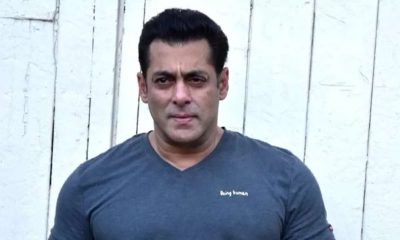
 India News10 hours ago
India News10 hours agoSalman Khan house firing case: Mumbai crime branch recovers gun, cartridges from Tapi River in Surat
-
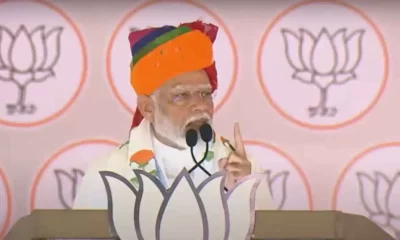
 2024 Lok Sabha Elections8 hours ago
2024 Lok Sabha Elections8 hours agoPrime Minister Narendra Modi says listening to Hanuman Chalisa under Congress rule is a crime
-

 Entertainment7 hours ago
Entertainment7 hours agoFan jumps on stage and hugs Atif Aslam during concert, video goes viral
-
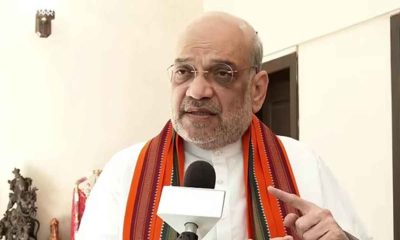
 2024 Lok Sabha Elections5 hours ago
2024 Lok Sabha Elections5 hours agoAmit Shah says neither Congress nor Trinamool chief Mamata Banerjee can interfere with CAA

